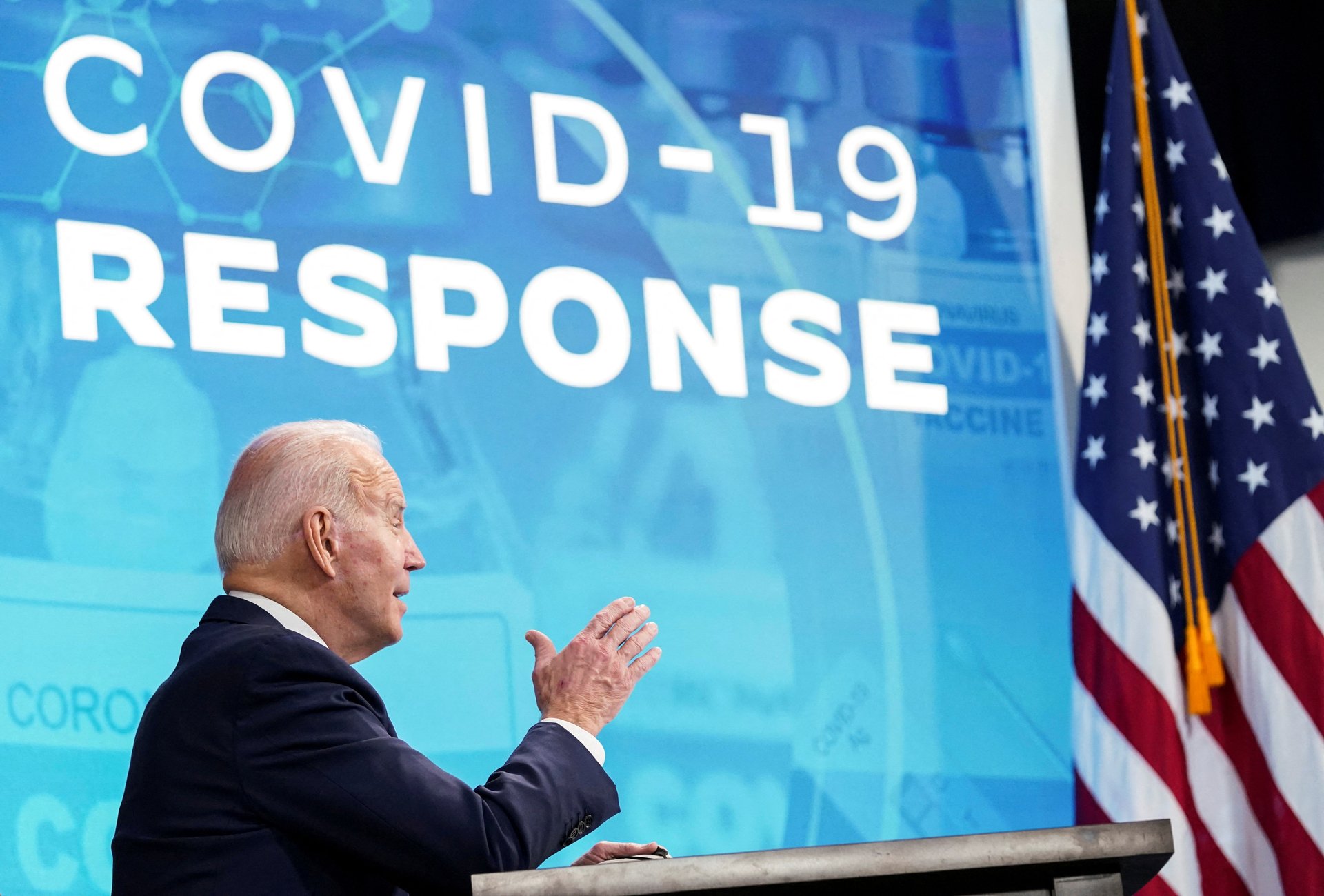The BA.2 covid sub-variant is now dominant in the US
The omicron sub-variant BA.2 accounted for most new coronavirus infections in the US last week, according to new data from the Centers for Disease Control and Prevention (CDC). In the week ending March 26, BA.2 accounted for nearly 55% of new cases, while the previously dominant strain BA.1.1 accounted for 40.4% of cases.


The omicron sub-variant BA.2 accounted for most new coronavirus infections in the US last week, according to new data from the Centers for Disease Control and Prevention (CDC). In the week ending March 26, BA.2 accounted for nearly 55% of new cases, while the previously dominant strain BA.1.1 accounted for 40.4% of cases.
While covid-19 cases in the US have been declining since hitting an all-time high due in January, a surge of BA.2 cases in Europe and Asia has put US health officials on alert even as most states have dropped restrictions. Meanwhile, the Food and Drug Administration (FDA) approved an additional covid-19 booster shot today (March 29) for older and immunocompromised people in the US.
What we know about BA.2
BA.2 has been around since the omicron variant first emerged last fall, but it didn’t account for a meaningful proportion of US covid-19 cases until early this year. Between the week ending Jan. 29 and Feb. 26 the proportion of BA.2 covid cases grew nearly 10-fold, and has gradually eclipsed BA.1 cases over the past month.
The now-dominant sub-variant is believed to be more transmissible than previous variants of the virus, in part because its spike protein has several mutations that are not present in other omicron strains.
But so far BA.2 doesn’t appear to cause more severe illness than the previously dominant omicron strain, and US-approved vaccines should provide sufficient protection against severe disease. People who were previously infected with BA.1 should also have good immunity against BA.2, according to Joshua Sharfstein, a professor at the Johns Hopkins Bloomberg School of Public Health.
How the US is responding
While other parts of the world are locking down in response to surging BA.2 cases, the US is largely open, with few pandemic restrictions still in place.
Today the FDA approved a second booster dose of the Pfizer and Moderna vaccines for anyone over 50 years old, as well as some immunocompromised patients. While the US hasn’t yet recommended a fourth covid-19 vaccine for all Americans, an FDA official said last month this would likely happen in the fall.
Even as the US continues to document thousands of coronavirus cases each week, the money to pay for covid testing, treatment, and vaccines may soon run out due to an impasse in Washington. The White House recently asked Congress for an additional $22.5 billion to support domestic and global covid-19 efforts, but the funding was stripped from a final government spending bill.